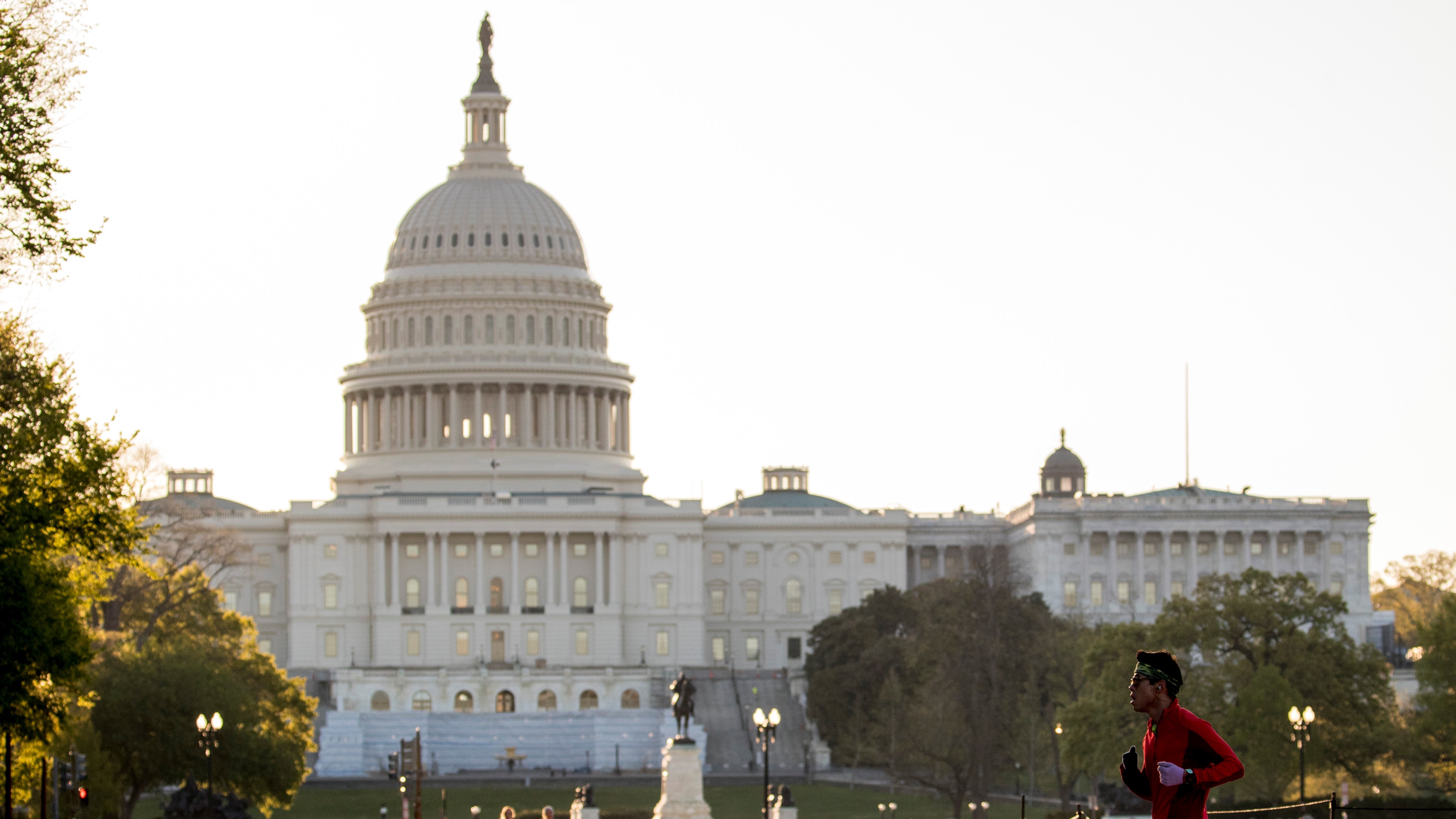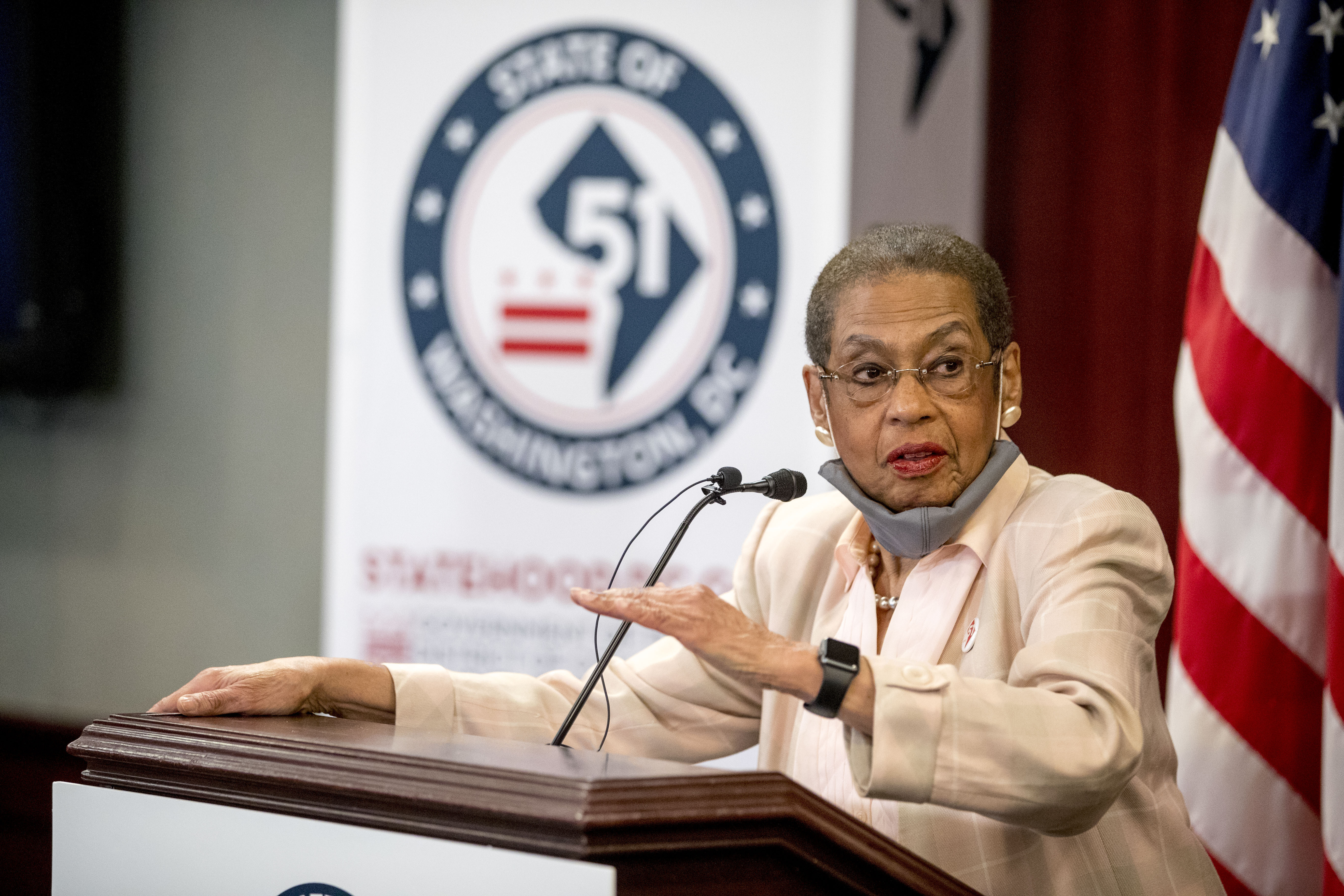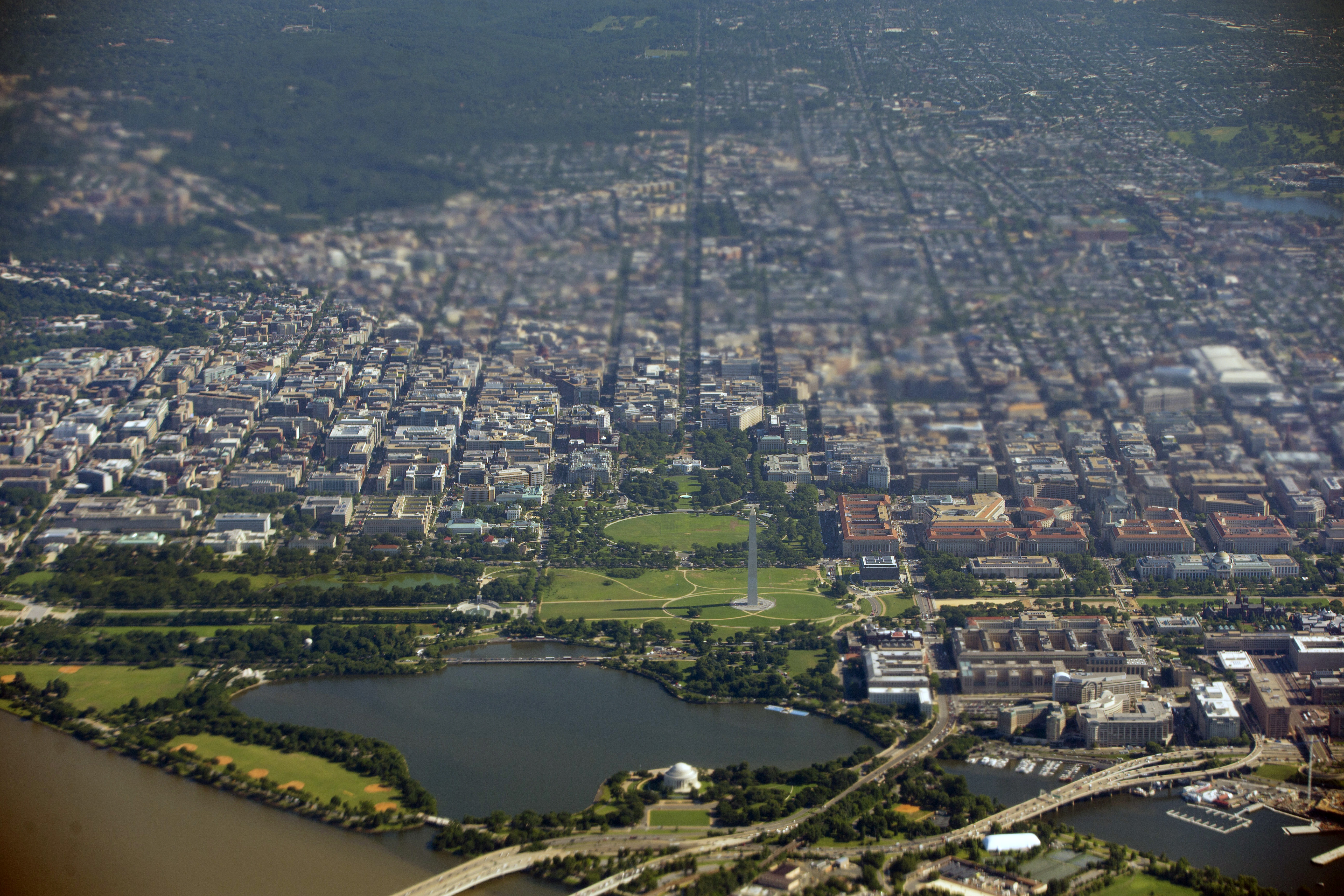
The U.S. Capitol Building is visible as a jogger makes his way across the National Mall in Washington, D.C., April 22, 2020. /AP
The U.S. Capitol Building is visible as a jogger makes his way across the National Mall in Washington, D.C., April 22, 2020. /AP
There are 50 stars on the flag of the United States, one for each state in the Union. And yet, the District of Columbia, home to the country's capital Washington, D.C., is not one of them.
A bill expected to pass on Friday in the U.S. House of Representatives aims to change that.
What is it about?
Washington, D.C. was established in 1790 as the nation's capital and designated a federal district to differentiate it from the states.
But as a result, it has not benefited from the same rights as neighboring Maryland and Virginia and others farther afield.
This means the approximately 700,000 people living in the city have no representative in the U.S. Senate and only a non-voting delegate in the House of Representatives – the two chambers of Congress that propose and vote on legislation.
And this is despite the fact that the District of Columbia has more people than states like Vermont or Wyoming, which each have two senators and one representative in the House.
Unlike states, D.C. also needs approval from Congress to pass its own laws or set its budget.
Why now?
This is not the first time that a debate over D.C.'s statehood has erupted. A vote on making it the 51st state was held in the House of Representatives in 1993 but was defeated.
Numerous other bills have been introduced to Congress but haven't made it to a vote. In 2016, a referendum on statehood won support from 78 percent of the District's residents.
Opponents of statehood argue that the creation of a federal district as the seat of government under Congress's exclusive jurisdiction was established in the U.S. Constitution.
Supporters however point out that besides government offices, Washington, D.C. is also home to hundreds of thousands of people who live and work there and deserve a voice.

House Delegate Eleanor Holmes Norton speaks at a news conference on District of Columbia statehood on Capitol Hill, Washington, D.C., June 16, 2020. /AP
House Delegate Eleanor Holmes Norton speaks at a news conference on District of Columbia statehood on Capitol Hill, Washington, D.C., June 16, 2020. /AP
The capital is "the only American jurisdiction whose residents do not have full voting rights and where the Congress of the United States can interfere at will with their local jurisdiction. We have been in existence for 219 years but the last to get full and equal rights with other American citizens," Eleanor Holmes Norton, D.C.'s non-voting delegate in the House, noted in an NPR interview on Wednesday.
As with everything in D.C., there is the political aspect: The District has a predominantly Black population and votes mainly Democrat. As a result, Republicans have long opposed statehood, fearing it would give the other side more say.
Friday's vote also comes as anti-racism protests have erupted across the U.S following a series of police killings of Black men and women.
"This is not just an issue of local governance and fairness, it is a major civil rights issue as well," House Majority Leader Steny Hoyer said as he announced the vote last week. "This was an appropriate time to bring a bill forward to show respect for the citizens of the District of Columbia of whatever color, but also to show respect to a city that has a very large African American population."
What are the chances?
The HR51 bill does not intend for all of the current District of Columbia to become a state. Rather, it will be split into two. A small section of D.C., basically encompassing the Mall and including the White House, the Capitol, the Supreme Court and surrounding federal buildings and monuments, will remain a federal district under the name District of Columbia. The rest will become "Washington, Douglass Commonwealth."

The White House, the Washington Monument, the National Mall and the city of Washington, D.C., are seen from Air Force One, June 29, 2016. /AP
The White House, the Washington Monument, the National Mall and the city of Washington, D.C., are seen from Air Force One, June 29, 2016. /AP
The statehood bill is expected to pass in the Democratic-led House of Representatives on Friday. But approval in the Senate, which has a Republican majority, is much less likely.
Senate Leader Mitch McConnell noted in a Fox News interview last year that as long as he was in charge, "None of that stuff is going anywhere."
President Donald Trump doubled down in May, telling the New York Post: "D.C. will never be a state." "So we can have two more... Democrat senators and five more congressmen? No thank you. That'll never happen," he added.
Who else?
Washington, D.C. is not the only U.S. region seeking additional rights and representation.
Puerto Rico, a U.S. territory in the Caribbean Sea with a population of 3.2 million, also has just one non-voting delegate in the House and no representative in the Senate. Moreover, Puerto Ricans are not allowed to vote in presidential elections even though they are U.S. citizens.
The same goes for the other four U.S. territories: Guam, American Samoa, the U.S. Virgin Islands and the Northern Mariana Islands.
Read more: Puerto Rico, soon to be the 51st US state?
Political leaders in the territories have backed a number of different solutions, including maintaining the status quo and all-out independence.
But statehood for Puerto Rico has gained traction. Supporters argue that it would entitle the impoverished island, plagued by mass emigration and unemployment and a serious debt crisis, to billions more in federal funds. Survivors of 2017's deadly Hurricane Maria also criticize that U.S aid was less forthcoming than to states hit by natural disasters.
A referendum on statehood is to be held in November on the island. The last time the question was put to a vote in 2017, an overwhelming majority said yes, but turnout was low.
Guam, American Samoa, the U.S. Virgin Islands and the Northern Mariana Islands have also discussed the possibility of statehood over the past few decades, but so far with no change of status in sight.